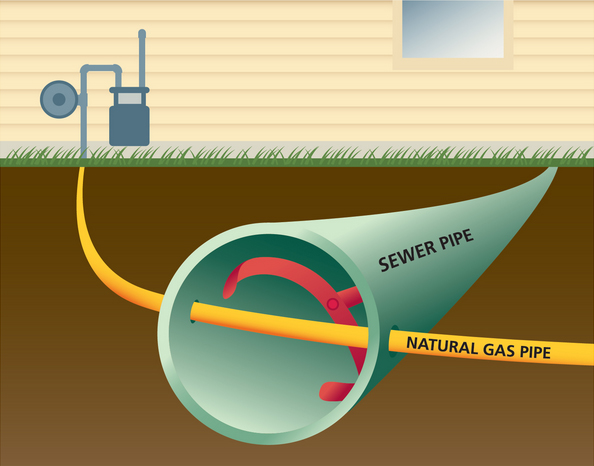Emergency Responder Safety
Important safety information for emergency responders
Avista delivers natural gas and electricity using equipment regulated by state and federal rules. While we work hard to keep our equipment and systems safe, emergencies can still happen. Firefighters or police may arrive before Avista. Their first job is to protect people, then property.
This page shares important electric and natural gas safety tips. For more information about Avista’s emergency plans, contact Avista.
Natural gas emergencies
When you get a call about a damaged gas pipe or a suspicious odor, your next steps can save lives. Follow these guidelines to remain safe and prepared.
Avista regularly checks its natural gas system to make sure it remains safe and reliable. For more information about our Integrity Management program call us at (800) 227-9187.
- It's odorless, colorless, and toxic.
- Symptoms include flu-like signs, shortness of breath, headache, dizziness, nausea, fatigue, confusion, ringing in ears, pink skin, and red mucous membranes.
- The person may seem intoxicated, a sign of poisoning.
- Evacuate the area and call Avista at (800) 227-9187.
Watch a video: Signs of carbon monoxide poisoning
- Avista adds an odorant called mercaptan for faster detection.
- Natural gas can produce toxic carbon monoxide if burned improperly.
- It's highly flammable and can be ignited by many sources (matches, sparks, light switches, electronics, etc).
- Natural gas is lighter than air and can migrate into enclosed spaces.
- Evacuate the area.
- Turn off the gas valve at the meter or appliance, if necessary, but don’t turn it back on.
- Don’t turn off valves at the main or regulator station.
Watch a video: Smell gas? Get out!
Watch a video: Outdoor Gas Leaks
Outdoors:
- Park a safe distance upwind from reported gas leak and look for sewer manholes – gas can migrate into the sewer – but don’t enter them.
- Don't extinguish the fire unless lives are in danger. Outdoors, burning gas is unlikely to explode.
- Turn off systems that bring air into the building and check for gas accumulating in nearby buildings and sewers.
- Don't use water on burning gas where it is escaping but spray it on items around the combustible area.
- Reroute traffic if needed.
Indoors:
- Keep combustibles wet with spray stream if you can't shut off the gas.
- Shut off gas at the meter and inform Avista. If a gas fire continues to burn, the source is probably outside.
- Leave the gas off, only Avista personnel should turn it back on.
- Check the surrounding area, including other buildings, for evidence of natural gas.
- Evacuate the building.
- Don’t operate electrical switches or anything that can cause a spark.
- Turn off gas valves at the meter only. Don’t turn them back on.
- Stay away from plastic pipe. It carries a static electrical charge that causes leaking gas to ignite.
- Evacuate the area and stay upwind.
You may encounter a gas line that was inadvertently bored through a sewer line. If you're cleaning out a sewer line with a rooter device, you may see these signs:
- Bubbles rising through standing water or toilet bowl
- Strong “rotten egg” odor of natural gas
- Dirt blowing from a hole in the ground
- Hissing or whistling noise
- Dead vegetation in an otherwise green area
Watch a video: Outdoor Gas Leaks
If you see the signs above, act quickly and follow these steps:
- Evacuate: Get everyone out immediately and leave doors open.
- Avoid sparks: Don’t use anything that could cause a spark, like flashlights or lighters.
- Call for help: From a safe distance, call 911 and then Avista at (800) 227-9187.
Not sure if a gas line was damaged? Call Avista at (800) 227-9187.

General pipeline markers are no substitute for calling 811
Avista’s transmission and major distribution pipelines for natural gas have above ground markers along their routes. These yellow markers include a 24-hour emergency phone number, only indicate the general location of buried natural gas lines and may not actually be located above the pipelines.
The absence of markers doesn’t mean there are no pipelines
You are always required to have pipelines located and marked by contacting 811 at least two business days before you dig.
Mapping System
Register at the National Pipeline Mapping System to obtain transmission pipeline maps by county and zip code, including the names of pipeline operators.
Electric emergencies
When you get a call about damaged electric poles, lines, or a structure fire, your next steps can save lives. Follow these guidelines to remain safe and prepared.
- Keep people away from the area.
- Don’t park under power lines or near electrical equipment.
- Use kitty litter or dirt to contain oil from transformers – not water. Then call Avista.
- Stay away from downed wires and keep others away.
- Don't touch or move the wires.
- Assume all wires, including telephone or cable lines, could be energized.
- Assume any nearby fence or object is also energized if the wire is touching it.
- Check for other damage or wires that could cause problems.
- Avoid contact with leaking oil from a transformers and keep it away from storm drains.
- Be cautious with equipment on your vehicle that may conduct electricity.
- Call Avista and provide the pole location.
Watch a video: Downed Power Lines
- Don’t touch the vehicle.
- Keep people away; a line can spring in any direction when freed of the vehicle.
- Keep vehicle occupants calm and inside the vehicle unless there’s immediate danger.
- If they must leave, they should jump out with both feet together.
- Jump free of the vehicle, landing on both feet together.
- Shuffle away from the vehicle, keeping feet together.
- Never touch the ground and the vehicle at the same time.
- Do not touch occupants while they’re in or jumping from the vehicle.
Watch a video: What to do when a fallen power line touches your vehicle
- Turn off power at the breaker panel or fuse box, if possible.
- Never pull the meter or cut service wires.
- In a smoke-filled structure, crawl or walk with arms raised in front of you – palms facing you – to reduce the possibility of contacting or grabbing an energized line.
- Assume everything is energized and dangerous.
- Treat vehicles in contact with transformers like downed power lines.
- Clear the area and know transformers can explode.
- Don’t enter vaults or manholes with burning electrical equipment.
- Wait for Avista to confirm power is off before you proceed.


